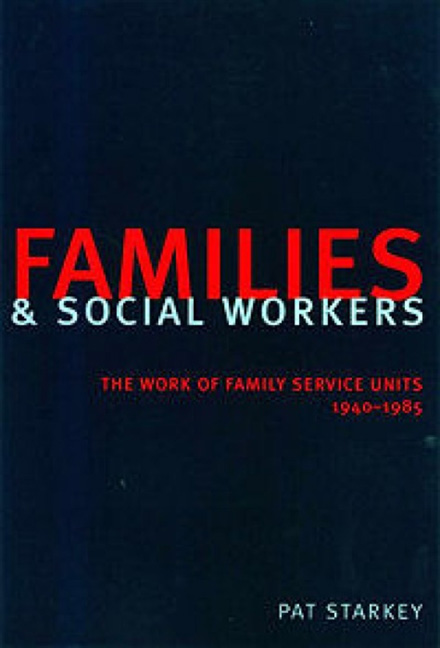Book contents
- Frontmatter
- Contents
- Acronyms and abbreviations
- Introduction
- 1 Pacifist Service
- 2 Problem Families, Eugenics and FSU
- 3 The Growth of a Social Work Agency
- 4 Changes and Adjustments
- 5 Training and Professional Development
- 6 Changing Relationships with the State
- 7 Almost Not An Organisation
- Conclusion
- Bibliography
- Index
3 - The Growth of a Social Work Agency
- Frontmatter
- Contents
- Acronyms and abbreviations
- Introduction
- 1 Pacifist Service
- 2 Problem Families, Eugenics and FSU
- 3 The Growth of a Social Work Agency
- 4 Changes and Adjustments
- 5 Training and Professional Development
- 6 Changing Relationships with the State
- 7 Almost Not An Organisation
- Conclusion
- Bibliography
- Index
Summary
The late 1940s saw the Manchester and Liverpool FSUs, together with a branch of the organisation which had opened in West London and was known as the Kensington and Paddington unit, becoming firmly established in their peacetime mode. In addition, plans were being laid for more new units throughout the country. For a brief period the Liverpool unit had functioned as the head office of the embryonic agency, with David Jones, the fieldwork organiser, working from there as national secretary. In October 1948 he moved to London, established the national office at the Kensington and Paddington unit, and again took on the dual roles of local fieldwork organiser and national secretary. After a short interval during which two other ex-PSU workers, Bert Wood and John Williams, jointly managed the unit, Jones was replaced in Liverpool by Fred Philp, who had also been a member of the wartime team and had recently returned from reconstruction work with the Friends Relief Service in Europe.
The establishment of a national office in London meant that the organisation's administrative centre shifted to the capital, and control of national events was removed from those key members of the Liverpool committee who had both steered and supported the work during the war and played a vital part in setting up the peacetime organisation. It was a development destined to have long-term consequences. Tension between Liverpool and London, centring largely on a lack of clarity about the division between local and national responsibility, was to colour organisational relationships for the next 20 years. The tension may be traced in part to this move and to the perception that the north-western units which had been responsible for the lion's share of the pioneering work were to become no more than branches of a London-based organisation. The fact that the first two national secretaries had themselves been important members of the Liverpool unit during the war may have helped to mask the worst of the resentment and have ensured that the unit believed itself to have a close personal link with headquarters, but on occasion it may also have exacerbated a difficult situation by allowing accusations of personal animosity to be made.
- Type
- Chapter
- Information
- Families and Social WorkersThe Work of Family Service Units 1940–1985, pp. 77 - 97Publisher: Liverpool University PressPrint publication year: 2000



